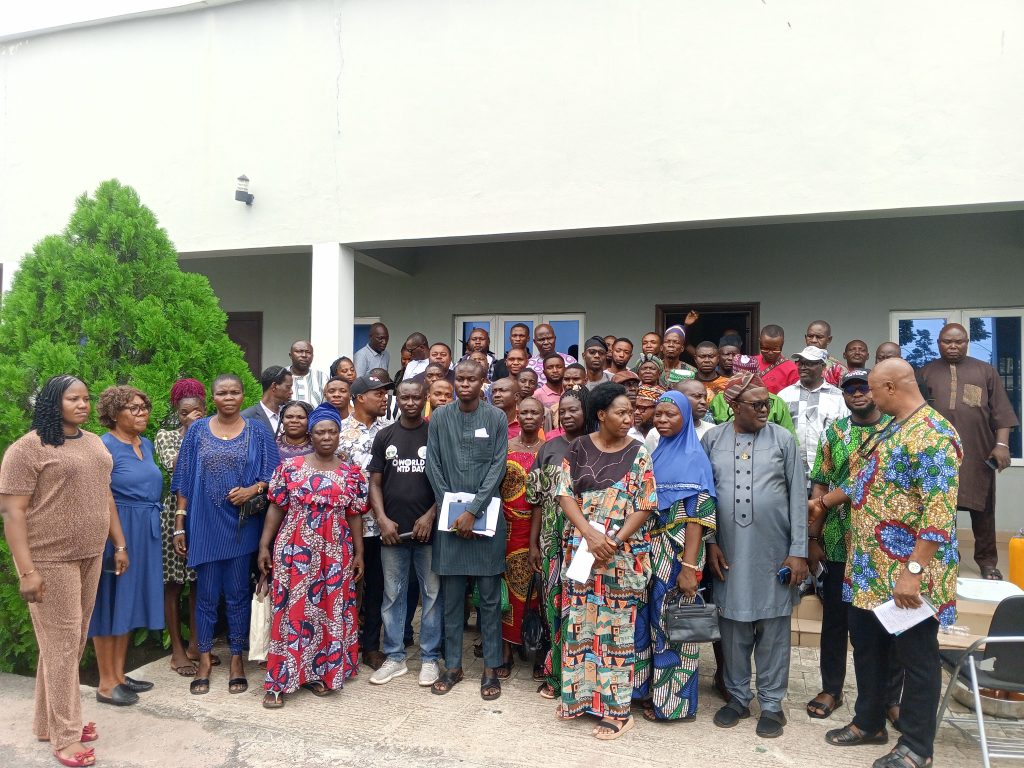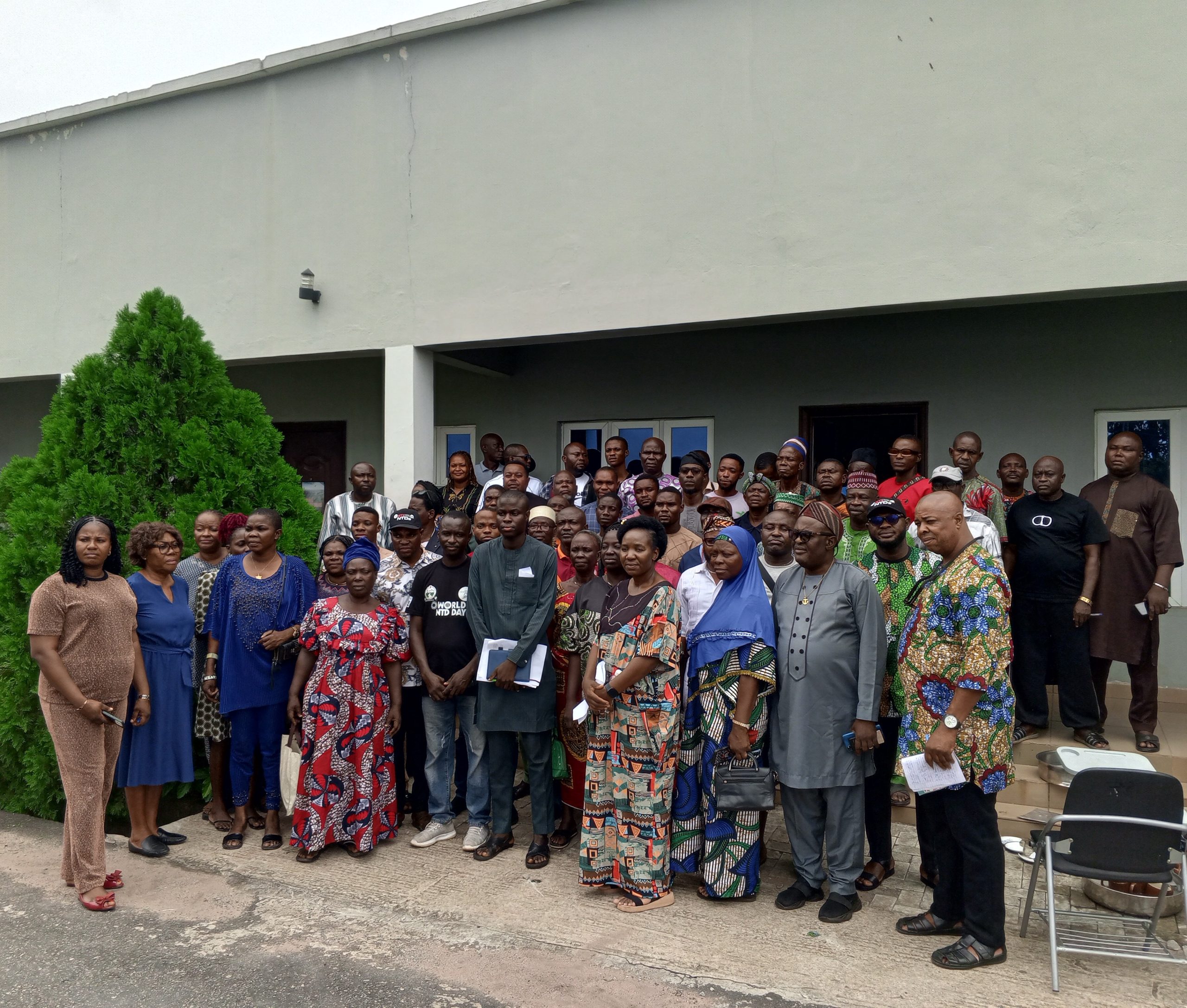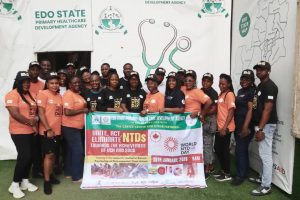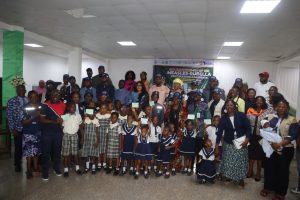The Edo State Primary Healthcare Development Agency (EDSPHCDA), in collaboration with The Carter Centre (TCC) and the Entomological Research Team, engaged Community and Women Leaders from selected communities in Edo State with flowing rivers that breed black flies which is a vector for river blindness.
The event took place on Friday, May 2nd, 2025, at the Edo State Migration Agency in Benin City.
During the welcome address, the Functioning Executive Secretary EDSPHCDA, Mr. Sunday Osayande, who was represented by the EDSPHCDA Head of the Public Relations Unit, Mrs. Nene Olaye, welcomed participants and emphasized the importance of the meeting stating that Slash and Clear initiative is a community-based vector control method aimed at reducing the prevalence of river blindness so as to ensure public health. She urged everyone to engage fully and absorb the information shared by the professionals, saying, “The knowledge gained here will help you make a meaningful impact and contribute to the betterment of your respective communities.”
The Director, Carter Centre (TCC) Edo/Delta Dr Emmanuel Emukah also spoke, advising the community and women leaders to take ownership of the program. He encouraged them to work together to eliminate the black flies, which will result in healthier communities. He reassured the leaders that even if external support from partners stops, they can continue the Slash and Clear program once or twice a year to control the black fly population and reduce the risk of river blindness.
The Director, Disease Control and Immunization EDSPHCDA Dr Efeomon Eseigbe ably represented by the State NTD Coordinator, Mrs Happy Poko further explained the dangers of the black fly, known as Sipor in the local dialect. She shared that when a black fly bites a person, it can remain in the body for up to five years before symptoms such as depigmentation, skin changes (thickening or wrinkling), and vision problems (which may progress to blindness) appear.
Although the program was implemented in selected communities drawn from the 5 LGAs that borders Ondo State in 2024, the research team wanted to evaluate its success. She advised the group to pay attention, as they would be divided into focus groups for further discussion.
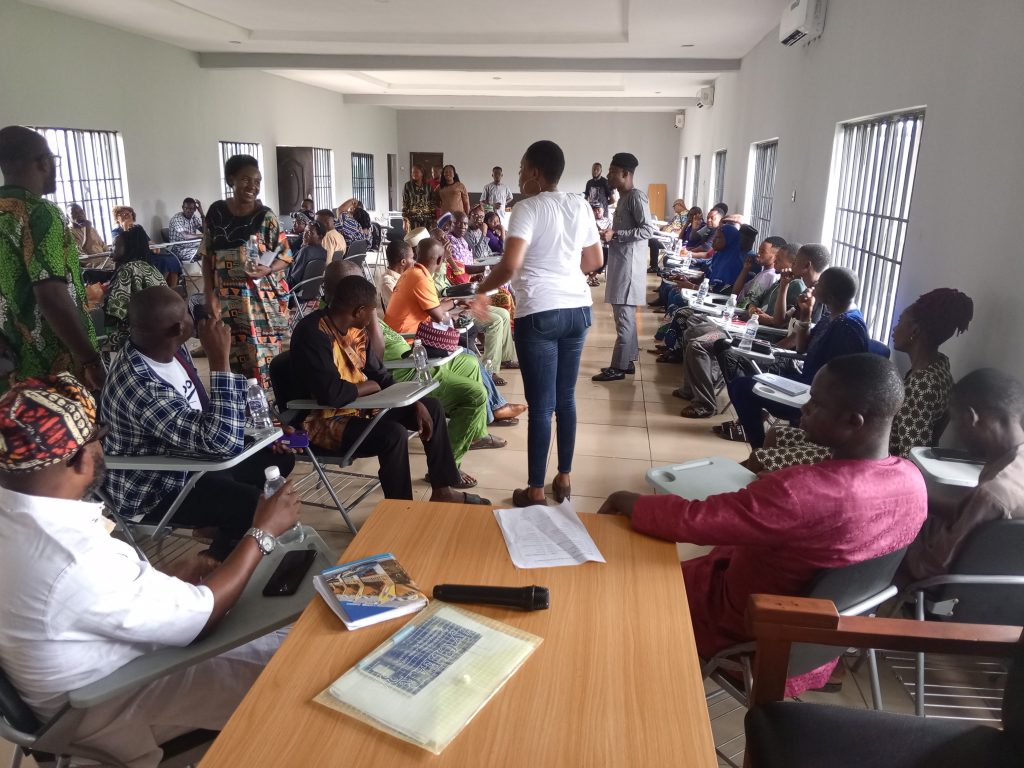
A member of the research team Mr Adeshina Olusegun Quadri explained that the Slash and Clear initiative is to complement the Ivermectin (Mectizan) treatment. The aim is to eliminate black fly breeding sites, making the community safer and reducing the spread of river blindness.
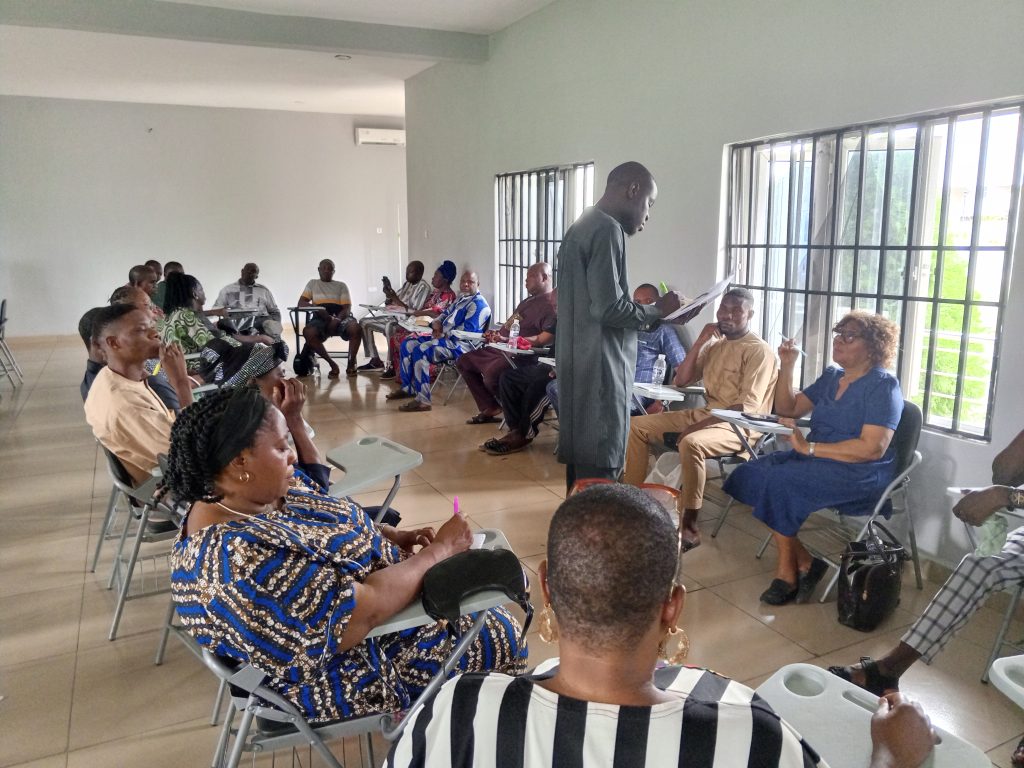
The group was then divided into smaller community groups under Akoko Edo, Ovia South West, Owan East, Owan West, and Ovia North East for discussions. Some of the questions asked included:
- What challenges did you face during the Slash and Clear program?
- Are the communities willing to repeat the Slash and Clear initiative if there is no supervision?
- Did you notice a reduction in black fly bites after the Slash and Clear exercise?
- Is there any other support your community needs, aside from financial assistance?
- Was there any resistance during the Slash and Clear exercise? If yes, how was it resolved?
- Do you agree that you can continue this initiative with minimal logistical support?
- Can there be an advocacy campaign to involve community leaders, encouraging others to participate?
The community and women leaders responded positively, expressing their willingness to continue the Slash and Clear program. They highlighted that they have seen the benefits in reducing black fly populations but mentioned the need for better tools, such as cutlass sharpeners, gloves, rain boots, motor saws, and additional manpower, to make the exercise more effective.
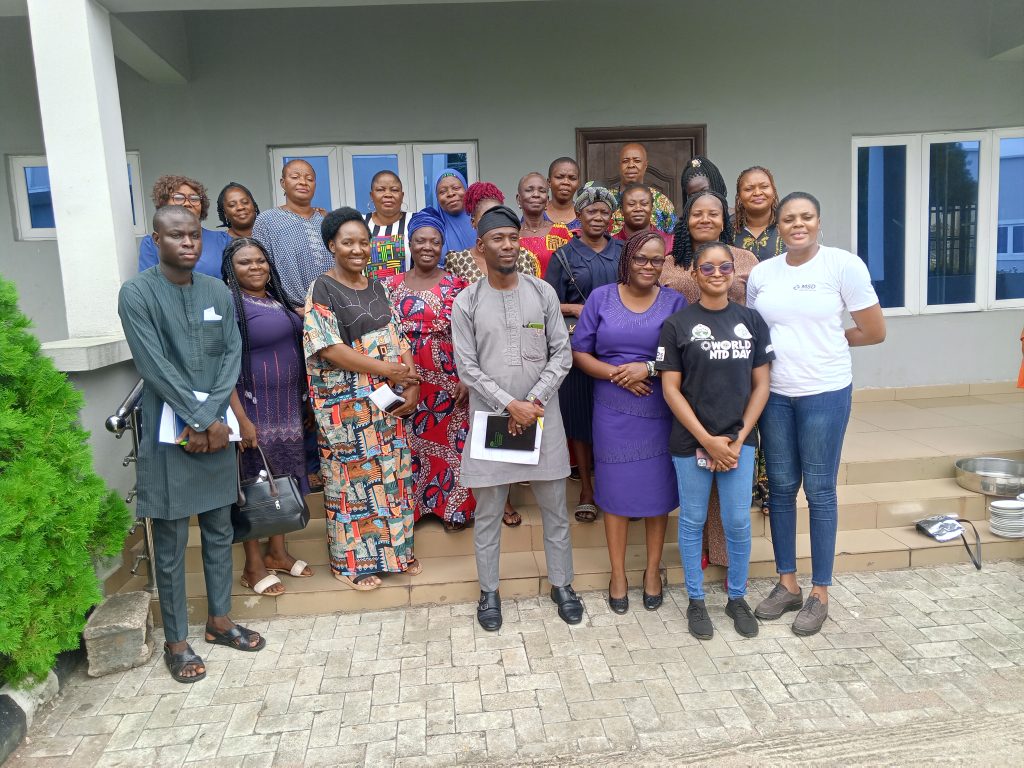
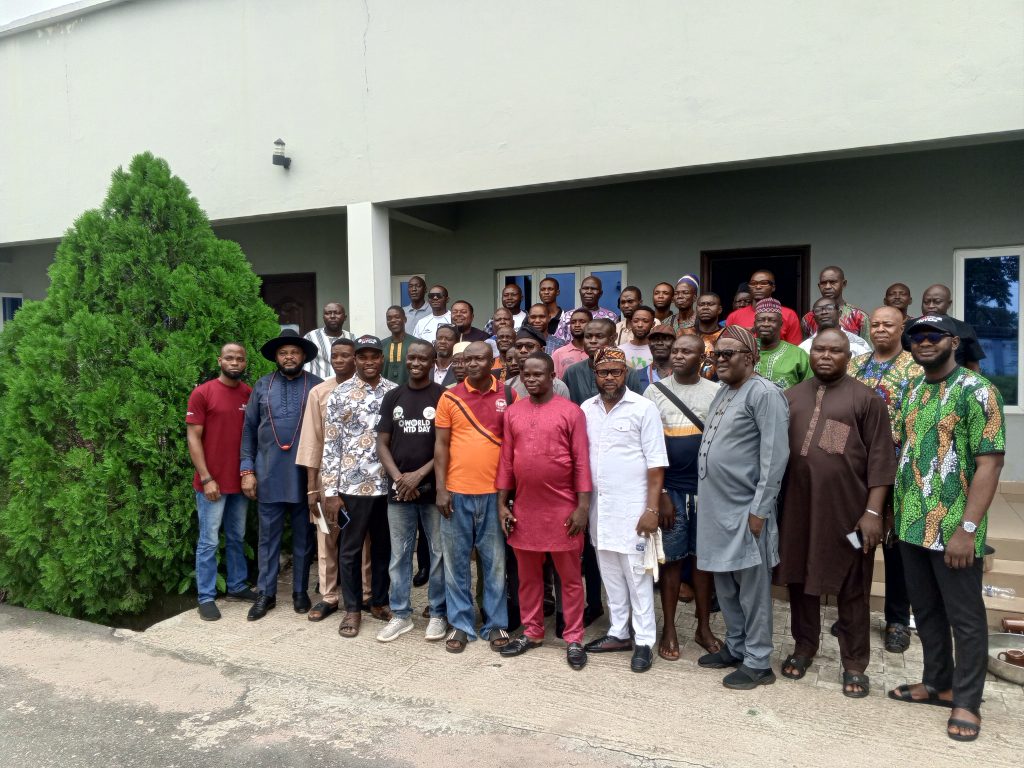
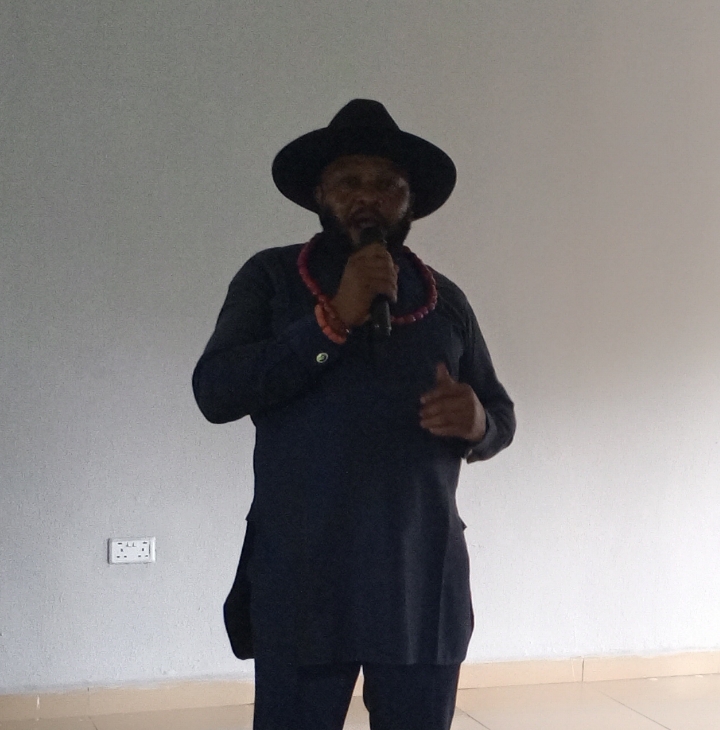
A major highlight of the day was a testimony from High Chief Ben Bowie of Kekere Community, Ovia South West. He shared a personal experience of how, growing up in the riverine area, he often noticed blood in his urine. However, after taking the NTD medicines, the condition disappeared. He expressed his gratitude to the State Government, the Agency, The Carter Centre, and the Research Team for their efforts to improve public health in the community.
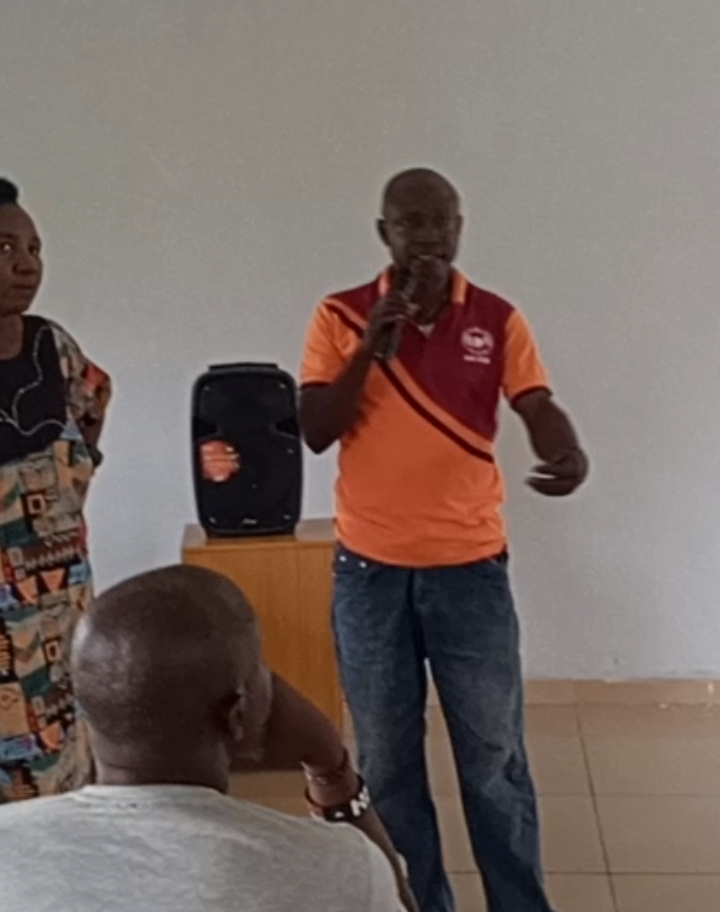
Another Community Leader, Mr. Oladele Gbemileke from Ajegunle Community in Ovia South West, also thanked the team for bringing the Slash and Clear initiative to their community in 2024. He shared that, in the past, he had to wear socks all the time to avoid black fly bites, which were common in the area. After the Slash and Clear exercise in addition to the mass administration of Mectizan, the bites significantly reduced, and his skin condition improved. He looks forward to participating in the exercise again in 2025.
In preparation for the 2025 Slash and Clear exercise, five cutlasses were distributed to each community present. This is to ensure that the program can be carried out effectively in the coming year.
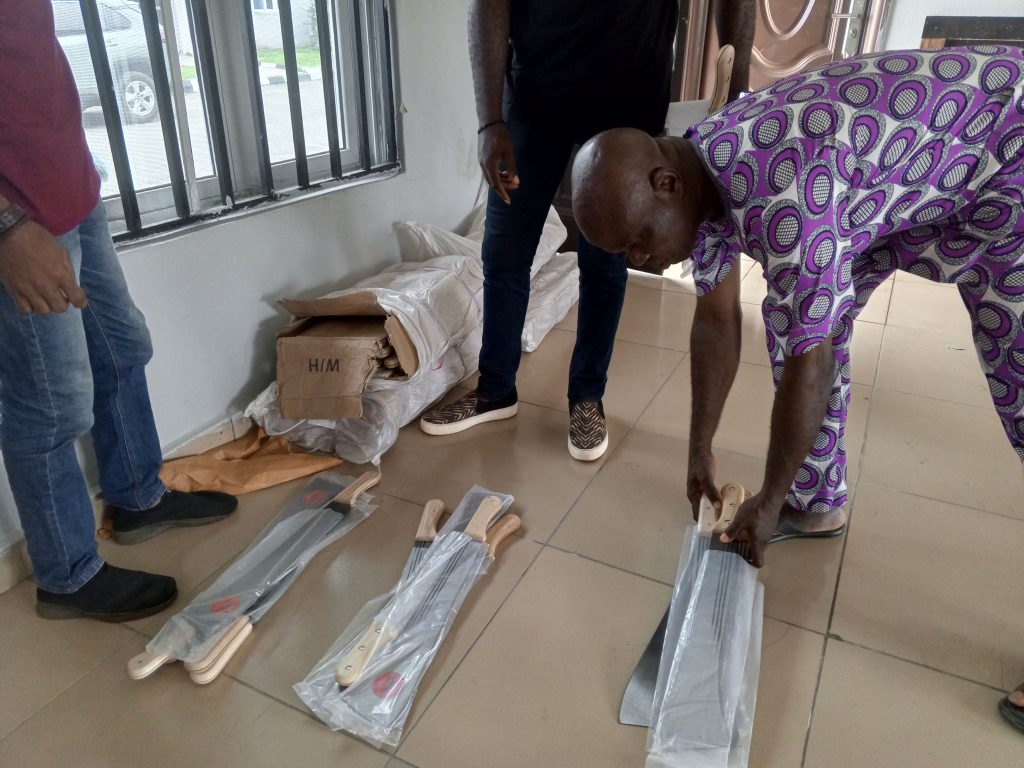
Present at the meeting were NTD Coordinators from the selected 5 LGAs with flowing river that breed black flies such as Akoko Edo, Owan West, Owan East, Ovia North East Ovia South West as well as Community and Women Leaders from various communities like Ikakumoh, Ijaja,, Ikiran Oke, Ayanran, Ikhin, Imafun Osi, Isa Camp, Okpokhumi, Uroe, Atoruru, Oke Old, Oke New, Eme, Ugbubezi, Eruere, Ugbuoko, Sabongidda Ora, Adebayo Camp, Ugbedu Camp, Obi Camp, Sobe, Abulmere, Ugbaraba, Ogbesse, Ugboke, Owan, Gelegele, Agekpanu, Okokhuo, Okayan, Agbanikaka, Oshodin, Kwale Camp, Siluko, Sule Camp, Lakaloko, Igueriakhi water Side, Evbonogbon, Makporo, Ugbogui 1, Ulorin, Ugbogui 2, Ojo Kassim, Madagbayo, Ajegunle, Araromi, Iya-Alasho, Okebata and Kekere Community.
